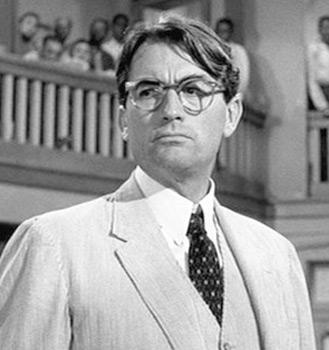 What explains the staying power of Harper Lee’s book “To Kill a Mockingbird” and the film that starred Gregory Peck as Atticus Finch?
What explains the staying power of Harper Lee’s book “To Kill a Mockingbird” and the film that starred Gregory Peck as Atticus Finch?
For some, it is its poignant story of Jean Louise, or “Scout.” Scout’s love and respect for her father, Atticus, gave her the courage to face the dangers and unfairness of a flawed world. For others, it is Atticus himself and his example of dignity, kindness and courage.
But things are much more complicated according to a new book, “Why To Kill a Mockingbird Matters: What Harper Lee’s Book and the Iconic American Film Mean to Us Today,” by Tom Santopietro.
“Mockingbird’s” staying power is evidenced by its inclusion on PBS’ list of 100 novels in contention for selection as America’s best-loved book. The list is a part of PBS’ “Great American Read” broadcast series airing on UNC-TV September through October.
That staying power is remarkable, according to Santopietro because in “the nearly 60 years since Mockingbird was originally published, the world has changed much more than the previous 300 years combined.”
Santopietro gives us a biography of the “Mockingbird” phenomenon. He takes us to Harper Lee’s hometown, Monroeville, Alabama, and introduces us to the friends, family and neighbors who were models for the characters of her book. Readers also learn about Harper-Lee’s gentle home life and her town’s oppressive segregated social system.
Readers learn how the book was written, how it was sold to a publisher and how it took the country by storm. They also learn how the movie was made, including the key casting decisions that brought Gregory Peck onboard and how a North Carolina woman from Reidsville, Alice Lee “Boaty” Boatwright, made the key selection of a 9-year-old Birmingham, Alabama, girl who had no acting experience to play Scout.
Santopietro describes how “Go Set a Watchman,” a sequel or a prequel to “Mockingbird” written in the 1950s, came to be discovered in 2014 and published the following year. That book shocked readers with its very different look at Atticus Finch, the hero of “Mockingbird.”
In “Watchman,” Atticus is shown, in the words of Isabel Wilkerson, as a “gentleman bigot.” He is a supporter of the White Citizens Council and a firm opponent of the court-ordered desegregation of public schools and the efforts to open public accommodations to African-Americans.
Santopietro asserts that the Atticus of “Watchman” resembles “no one as much as Strom Thurmond.”
He continues, “Like Thurmond, Atticus here seems to believe that the worst of all possible worlds lies in any involvement on the part of the federal government, an evil topped in his mind only by the participation of the NAACP.”
A better model for “Watchman’s” Atticus than the sometimes mean-spirited Thurmond might be I. Beverly Lake, the segregationist candidate who opposed Terry Sanford in the 1960 North Carolina governor’s race. Lake sincerely believed in segregation, and like Atticus, he was a gentleman. In fact, according to John Drescher in his “Triumph of Good Will: How Terry Sanford Beat a Champion of Segregation and Reshaped The South,” Lake supported the liberal Frank Porter Graham in the 1950 race for U.S. Senate and condemned the racist attacks from the campaign of Graham’s opponent.
According to Drescher, “Lake’s personal and public generosity was part of his appeal as a candidate and set him apart from other leading Southern segregationists of the 1950s and 60s. He was not a hater.”
The racial views of Lake in the 1950s were like those of Harper Lee’s father, A.C., the model for Atticus. According to Santopietro, these men “represented the typical white southern male viewpoint in the 1950s.”
Can we still honor the contributions and good qualities of those who held to this discredited viewpoint of their times?
If not, “Mockingbird” will slip off the lists of best-loved books.
Photo: Gregory Peck played Atticus Finch in the film adaptation.

 How to resolve AdBlock issue?
How to resolve AdBlock issue? 








